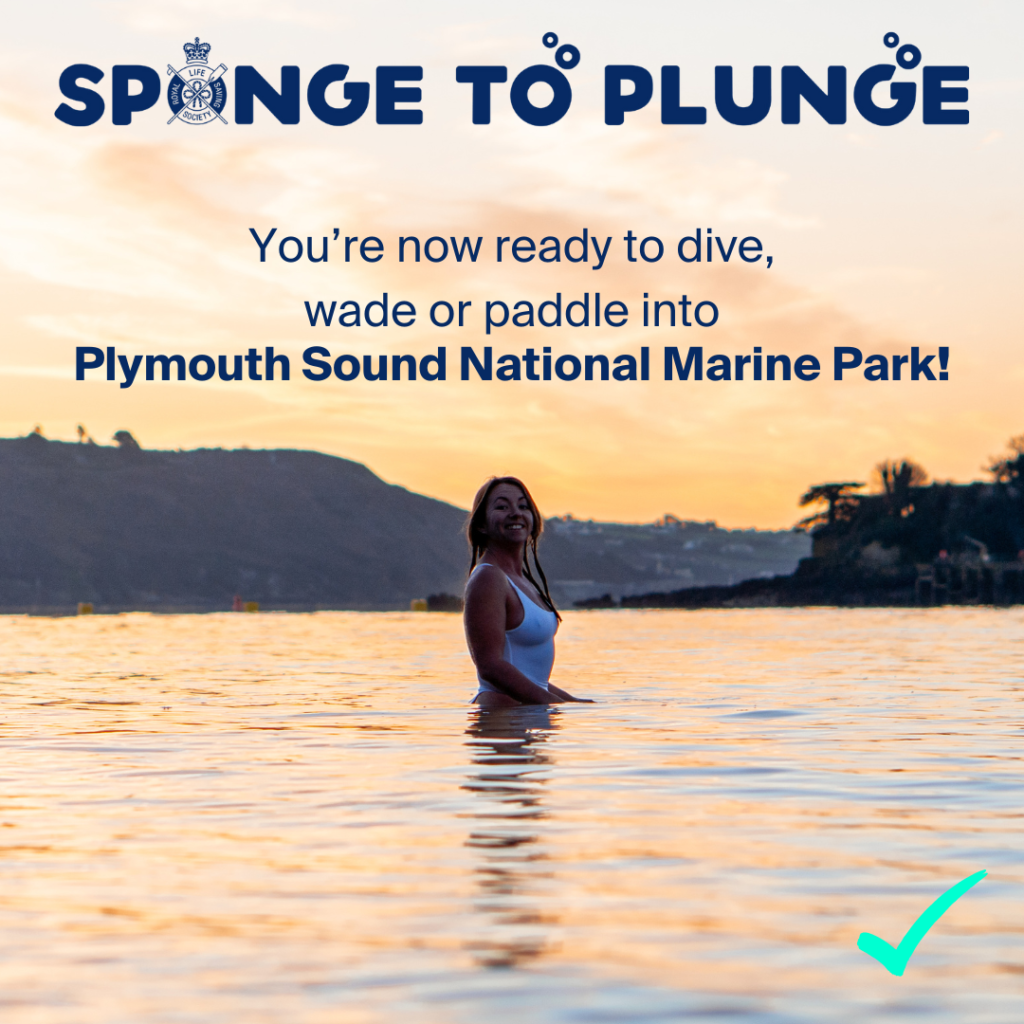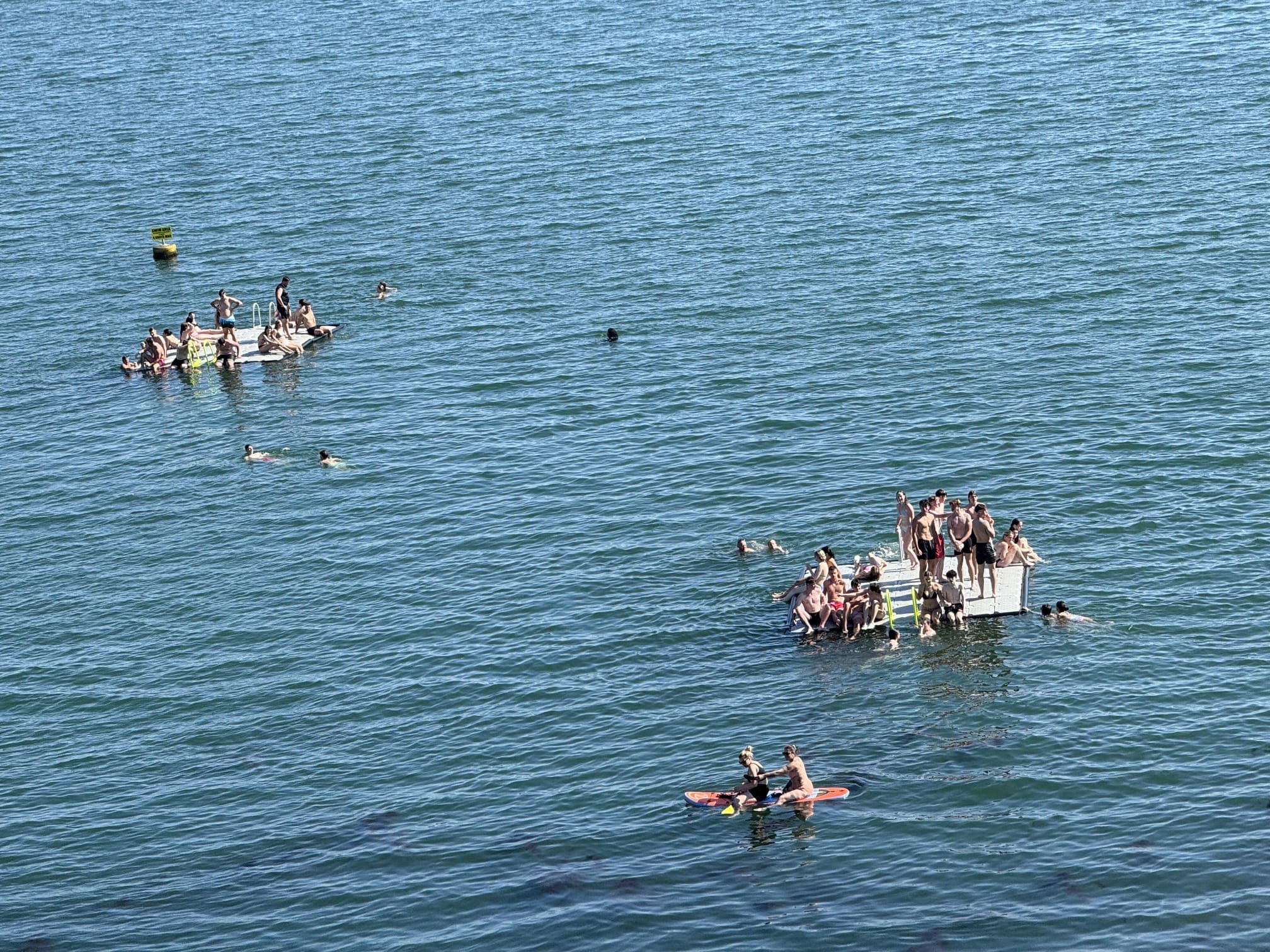Now the pontoons are back in and the warmer weather is sweeping in, we want to give you all the tools you need for a safer sea swimming experience within the UK’s first National Marine Park. Here’s a deep dive into cold water shock and how to mitigate it through The Royal Lifesaving Society‘s (RLSS) Sponge to Plunge practise.
Cold water shock can occur when your enter in water below 15 degrees. The average temperate of sea water in the UK is just 12 degrees.
Cold water shock causes the blood vessels in the skin to close, which increases the resistance of blood flow along with an increased heart rate. The heart begins to work harder, and can lead to heart attacks, even in the relatively young and healthy.
The sudden cooling of the skin by cold water also causes an involuntary gasp for breath.
All these responses contribute to a feeling of panic, increasing the chance of inhaling water directly into the lungs.
The RNLI recommends these 3 things if you enter the water unexpectedly:
- Take a minute. The initial effects of cold water pass in less than a minute so don’t try to swim straight away.
- Relax and float on your back to catch your breath. Try to get hold of something that will help you float.
- Keep calm then call for help or swim for safety if you’re able.
For more information on safety in the water, visit rnli.org/safety
The Royal Lifesaving Society (RLSS) have created the water safety code which is vital for everyone to abide by near the water. It’s a simple and memorable way of knowing what to do in an emergency and proactive ways to avoid danger. View and download here.
The RLSS have also put together a home guide to gradually get your body ready for the cold waters of the Sound. It’s called Sponge To Plunge, see below!








